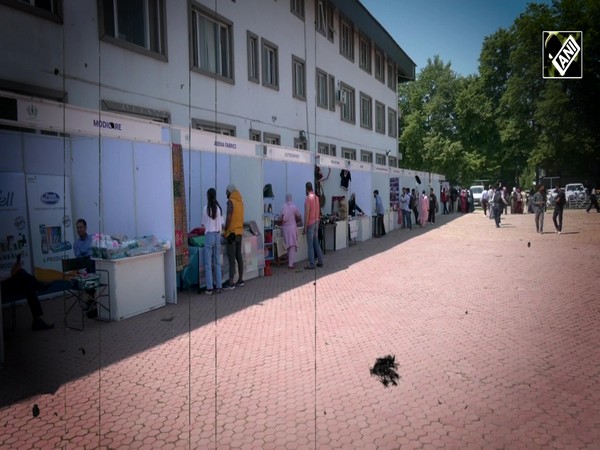"As deadly as strokes..." UN climate report warns on Pak's climate change-related death
Nov 06, 2022

New York [US], November 6 : Climate change-related death rates in Pakistan's Faisalabad could see an increment almost "as deadly as strokes" which is currently Pakistan's third leading cause of death, said the latest UN climate report.
Noting that Pakistan "need to act quickly", the new UN data demonstrates how Faisalabad district in Punjab Province could expect annual climate change-related death rates to nearly double, reaching 67 deaths per 100,000 by midcentury.
The actions the UN reports urged to take not only to mitigate climate change but also to adapt to its consequences. By giving the instance of Faisalabad, the data suggest that even with moderate mitigation, additional deaths due to climate change would average 36 per 100,000 people each year between 2020-2039.
Without substantially expanding adaptation efforts, Faisalabad's death rates propelled by climate change is to nearly double, highlighted the UN report terming it an "increment almost as deadly as strokes, currently Pakistan's third leading cause of death."
Climate Impact Lab's Hannah Hess, Associate Director at Rhodium Group said, "As we face the punishing impacts of global climate change it can be easy to wonder whether efforts to reduce emissions by individual countries, states, or cities really make a difference. This platform shows the direct role these efforts play in shaping our collective future."
Climate change could be as deadly as cancer in parts of the world, according to new data. It pointed out that already vulnerable areas set to be hit the hardest, driving an inequality surge in human development unless there is urgent climate action
Without concerted and urgent action, it said, climate change will exacerbate inequalities and widen gaps in human development according to the new Human Climate Horizons platform launched by the United Nations Development Programme and the Climate Impact Lab.
Designed to empower people and decision-makers everywhere, it shows what climate change could mean for people's lives through changes in mortality, the ability to earn a living and energy use.
In Dhaka, it said, under a scenario of very high emissions, the additional deaths by 2100 due to climate change (132 in every 100,000 people per year) would be nearly twice Bangladesh's current annual death rate from all cancers, and 10 times its annual road traffic fatalities.
A comparison of the health impacts of climate change across countries points to a future that intensifies current inequalities: among G20 countries - which account for the majority of cumulative CO2 emissions - a third will experience additional death rates because of climate change.
But this surges to nearly three-quarters of the Least Developed Countries, dramatically increasing inequalities over the coming decades, the UN report suggested.
"In 2022, communities in every corner of the globe are witnessing a climate emergency that is hitting much faster and harder than many projected, representing both a threat to our future and a very real risk that must be addressed in the here and now," said UNDP Administrator Achim Steiner.
"Focusing on the effect of climate change on issues like mortality, labour and energy use, the new Human Climate Horizons puts vital data and analytics into the hands of policymakers, helping countries to take climate action where it is needed most. For instance, the platform shows that stronger global efforts towards the Paris Agreement's targets could reduce projected mortality from extreme heat in the year 2100 by more than 80%, saving tens of millions of lives."
The new data also shows that climate change will increase within-country inequalities. It gave an illustration of Barranquilla, a port city in northern Colombia noting that under a scenario of very high emissions, the additional death rate by 2100 because of warmer temperatures (37 people in every 100,000 per year) is five times greater than Colombia's death rate from breast cancer each year.
"Projections of human development impacts of climate change help to understand what the more dangerous world that we are likely to confront means for people's lives and their human security. But we should remember that the future is not predetermined," said Pedro Conceicao from the Human Development Report Office.
"These hyper-localized projections empower people to make decisions, from signaling the urgency of reducing emissions, to spotlighting emerging inequalities in human development, to, ultimately, helping communities, governments, insurers and other financial actors to act."
















